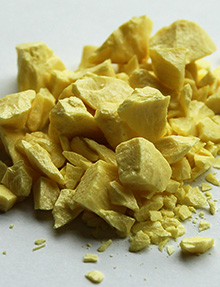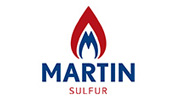Industry News
- Milky Way's sulfur x-rayed by XRISM satellite
-
(SPACE.com) - The X-ray Imaging and Spectroscopy Mission (XRISM) spacecraft has delivered an "unprecedented tally of elemental sulfur spread between the stars," according to NASA.
- Read More
- Trump tariffs threaten big shift to corn as inputs get pricier
-
(MSN) - President Donald Trump’s slew of tariffs means American farmers may not make that big shift to corn after all.
- Read More
- Trump EPA begins rolling back Biden electric vehicle 'mandate' in 'biggest day of deregulation in American history'
-
(MSN) - President Trump’s Environmental Protection Agency began the process Wednesday of rescinding vehicle fuel efficiency standards that Republicans have called a de facto “electric vehicle mandate,” The Post has learned.
- Read More
Member News
- Chevron boosts oil and gas recovery from two offshore facilities in U.S. Gulf of Mexico
-
(WO) – Chevron Corporation started water injection operations at two of its offshore projects to boost oil and gas recovery at the company’s existing Jack/St. Malo and Tahiti facilities in the deepwater U.S. Gulf of Mexico.
- Read More
- Koch changes company name to reflect its diversification
-
(Bloomberg) -- Koch Industries Inc., the second-largest closely held firm in the US, is changing its name after nearly six decades, along with its corporate structure.
- Read More
- Exxon aims to become a top lithium producer for electric vehicles with Arkansas drill operation
-
(MSN) - Exxon Mobil aims to become a leading producer of lithium for electric vehicle batteries through a drilling operation the oil giant is launching in Arkansas, the company announced Monday.
- Read More
What We Are Reading
Want best ROI on nitrogen? Think potassium and sulfur too
Field trials identify key links between nitrogen, potassium and sulfur.
Paying attention to nitrogen and sulfur together may be important
During the past decade, sulfur (S) deficiency symptoms and questions surrounding sulfur fertilizer management in corn have become increasingly more common in Indiana. While sulfur deficiency itself is not a new concept, its interaction with nitrogen (N) management, particularly nitrogen fertilizer rate, has emerged as an increasingly important issue that warrants closer examination.
Pay attention to nitrogen and sulfur together
Here is a look at why N and S are tightly linked for corn, including highlights and key preliminary insights from recent trials. As it turns out, understanding and managing interactions between these two nutrients may be critical for optimizing nutrient management and yield potential.










































